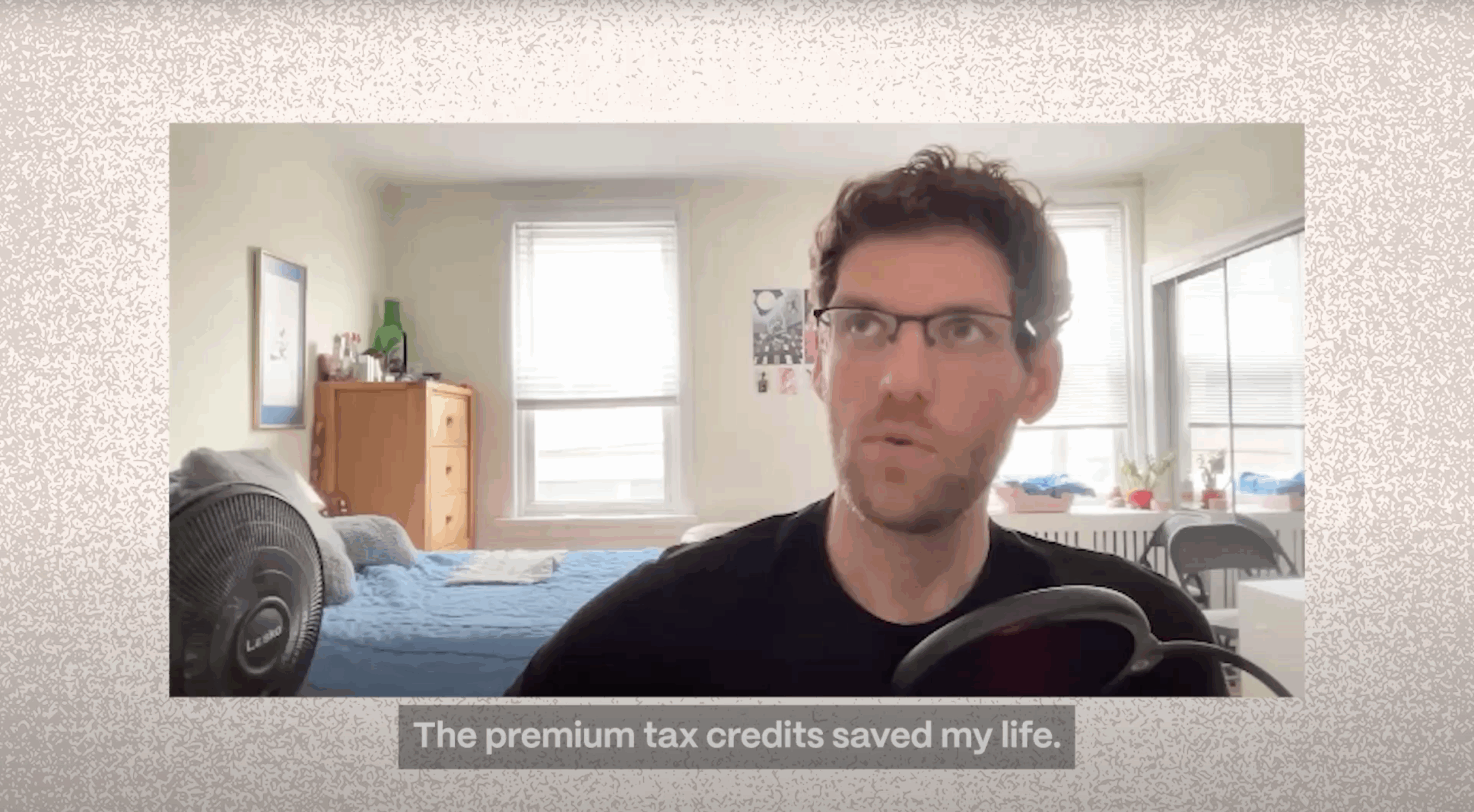It’s Time for Congress to Make Enhanced Premium Tax Credits Permanent
Every person, no matter their race, income, or ZIP code deserves to live in a community where families can access the care they need, small businesses can stay open, and people can stay healthy and thrive. Health care is the foundation of thriving communities.
The Problem
Congress pushed through the biggest health care cuts in U.S. history while offering tax giveaways to billionaires. Now they’re refusing to make enhanced premium tax credits (PTCs) permanent.
They are risking affordable care for over 24 million people like Jason.
If Congress sits silent and lets these critical supports expire:
- Premiums will skyrocket for people on marketplace plans
- Families will be forced into medical debt
- Everyone’s costs will go up, not just those losing coverage
- Local economies will collapse as household budgets are stretched thin
The Impact by Race and Ethnicity
Due to structural racism, Black and Hispanic people have the most to gain if Congress does act and make premium tax credits permanent. Because the credits make coverage more affordable, more people who previously couldn’t afford it will join. Early estimates based on 2024 data point to projected gains in 2025 enrollment for Black and Hispanic people compared to coverage enrollment for white people.
Understanding the Data:
- Nationally, there will be a 79% increase in coverage enrollment for Black people.
- There will be a 61% increase in coverage enrollment for Hispanic people.
- There will be a 42% increase in coverage enrollment for white people.
Background: What are Enhanced Premium Tax Credits?
When the Affordable Care Act (ACA) became law, it opened the door to affordable health coverage for millions of people by providing enhanced Premium Tax Credits (PTCs) to offset a portion of their monthly insurance premiums. But even with this big step forward, many people still found themselves limited by financial barriers for Marketplace plans with a price tag they couldn’t afford. This has been especially profound for people and families in non-expansion states like Georgia, Texas, and Florida where policymakers continue to block efforts to expand Medicaid.
24.3 million people enrolled in Marketplace insurance plans thanks to enhanced PTCs
To make health insurance more accessible to millions of families and individuals, in 2021 the Biden-Harris administration and Congress enhanced the Premium Tax Credits through the American Rescue Plan Act (ARPA) and the Inflation Reduction Act (IRA). This made Marketplace insurance more affordable for millions of eligible individuals and families by increasing their tax credit amount and allowing more people to purchase health insurance coverage without going into debt.
Without these enhancements, premium payments for millions will more than double in 2026.
Our family currently pays over $800 monthly for health insurance. If the subsidies are repealed, we are looking at around $2000 monthly. We’ll have to drop coverage [if that’s] for just the premium.
These tax credits have marked a pivotal moment in the ongoing effort to make health care affordable for all, regardless of income, race, or geography. The impact has been profound, especially for Black and Latinx families who have historically faced higher barriers to health care access.
I can only afford health insurance because of the ACA tax credits. Thanks to them, I was able to get knee surgery that I desperately needed, take care of my high blood pressure with medication, maintain my IUD, and get yearly mammograms. Even with insurance, I’m left with over $600 in physical therapy bills that my doctor ordered but wasn’t fully covered. Without these credits, I wouldn’t be able to afford insurance at all, and I would lose access to essential care that keeps me healthy and able to work. These tax credits aren’t just financial—they are literally what keeps me alive and healthy. – Karen, Kansas
Enhanced Premium Tax Credits (PTCs) are a key feature of the Affordable Care Act, designed to make health insurance more affordable for people with low and middle-incomes. Enhanced PTCs work by reducing monthly premium payments.
Get Involved
Don’t let Congress continue to put billionaires over everyday people. Make premium tax credits permanent.
- Share your story: How has having affordable health insurance helped you?
- Sign the petition: We Need to Make Premium Tax Credits Permanent
- Additional resources for partner organizations can be found here
Resources
The Threat to Black and Hispanic Communities if Congress Lets Enhanced Premium Tax Credits Expire
More Than 350 Organizations Calling on Congress to Make Enhanced Premium Tax Credits Permanent

Your health insurance could cost 20% more next year—here’s why

My Family’s Health Depends on These Tax Credits: Ricky’s Story

